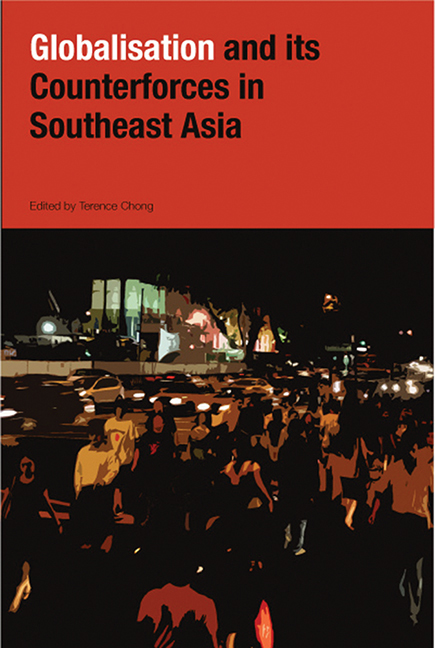Book contents
- Frontmatter
- Contents
- Foreword
- Preface
- The Contributors
- Introduction
- Part I The Political Contradictions of Globalization
- Part II Economic Regionalism and Global Influences
- 6 Globalization and the Role of the State in the Asia-Pacific
- 7 Economic Nationalism and the Limits of Globalization
- 8 Southeast Asian Perspectives on the Economic Rise of China
- Part III Local Security, Global Insecurity
- Part IV Social Processes: Arrested Development
- Part V Cultural Production in the Global Matrix
- Index
8 - Southeast Asian Perspectives on the Economic Rise of China
from Part II - Economic Regionalism and Global Influences
Published online by Cambridge University Press: 21 October 2015
- Frontmatter
- Contents
- Foreword
- Preface
- The Contributors
- Introduction
- Part I The Political Contradictions of Globalization
- Part II Economic Regionalism and Global Influences
- 6 Globalization and the Role of the State in the Asia-Pacific
- 7 Economic Nationalism and the Limits of Globalization
- 8 Southeast Asian Perspectives on the Economic Rise of China
- Part III Local Security, Global Insecurity
- Part IV Social Processes: Arrested Development
- Part V Cultural Production in the Global Matrix
- Index
Summary
INTRODUCTION: THE ECONOMIC RISE OF CHINA
The economic rise of China is usually linked to phrases such as “factory to the world” or “an awakening giant”. Many view China'S rise with trepidation and fear. Even a developed country like Japan has expressed fears that industrial upgrading in China with the assistance of Japanese multinational corporations (MNCs) will keep moving continuously upstream until China has acquired a full industrial structure, at the expense of Japan. It is, therefore, not surprising to sense increasing uneasiness among Southeast Asian countries which are using foreign direct investment (FDI) and the path of export promotion to further their development goals as Chinese exports flood the world. This chapter will assess the rise of China and its impact on the countries of Southeast Asia in order to see whether such fears are realistic or not.
The economic rise of China is generally associated with its rapid economic growth, the growth of its manufacturing sector and exports as well as the large flows of foreign direct investment (FDI) that have surged into the country since the early 1990s. Although China recorded relatively high growth rates from the late 1970s to the early 1990s (Indonesia, Malaysia, the Philippines, Singapore and Thailand) (referred to here as the ASEAN-5) also registered spectacular growth rates over the same period. Hence, the rise of China was not viewed as such a formidable threat before the advent of the Asian financial crisis. However, since the crisis affected the economic performance of the ASEAN-5, there has been an increasing perception that the economic rise of China is a threat, as shown by the following comparison of the economic performance of China and the Southeast Asian economies since 1997.
Between 1997 and 2007, Gross Domestic Product (GDP) in China grew at an average of 8.4 per cent, which was higher than the average achieved in the Southeast Asian countries (Table 8.1).
- Type
- Chapter
- Information
- Globalization and its Counter-Forces in Southeast Asia , pp. 169 - 204Publisher: ISEAS–Yusof Ishak InstitutePrint publication year: 2008

